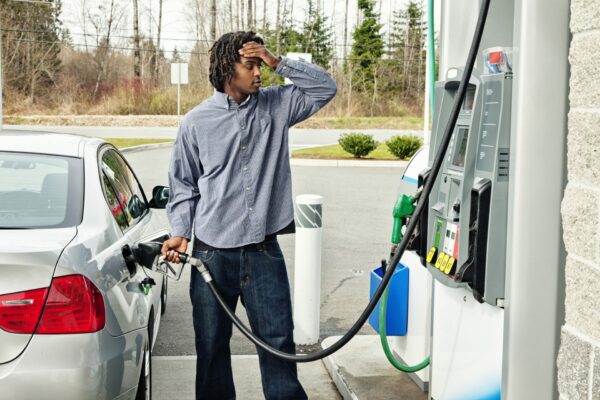How to prepare yourself for the increase in fuel price
It is no longer news that fuel subsidy is gone in Nigeria.
Removal of fuel subsidy simply means the government not paying for the difference between pump price and the actual cost of importing fuel anymore. It technically means full deregulation of the downstream sector to pave way for vibrant competition by other interested investors.
President Tinubu stood before Nigerians at Eagle Square and said “On fuel subsidy, unfortunately, the budget before I assumed office is that no provision is there for fuel subsidy. So fuel subsidy is gone.” Like magic, minutes after the declaration, fuel queues resurfaced nationwide and there was a scarcity of the products, a hike in prices as well.
We have compiled a list of how you can survive fuel increases. See below:
- Register your children and wards in schools at a trekking distance from your house. In fact, a study revealed that families who opted for nearby schools saved up to 15% on their monthly fuel expenses.
-
Patronize neighborhood shops and markets. Statistics indicate that shopping locally can save individuals and families an average of 10% on fuel expenses, contributing to a more sustainable and thriving local economy.
-
Attend neighborhood places of worship. Studies have found that individuals who worship within their communities instead of traveling long distances can reduce their fuel consumption by up to 20%.
-
Workers cooperatives should purchase vehicles to convey members to and from work at a non-commercial rate. Research indicates that such initiatives can save workers an average of 25% on commuting costs, resulting in improved financial stability and reduced reliance on expensive fuel.
-
Many of the issues for which you move around can be settled on the phone. Recent data suggests that utilizing phone calls and virtual meetings for issue resolution and collaboration can reduce travel-related expenses by approximately 30%, resulting in significant fuel savings.
-
Embrace virtual meetings. Studies have shown that virtual meetings can save an average of 2.5 liters of fuel per participant, per meeting. When extrapolated to a larger scale, this can lead to substantial reductions in fuel consumption and associated costs.
-
Total distance not more than 5km to-fro should be trekked. Trekking is good for your health. Walking or cycling for short-distance travel has proven to be not only cost-effective but also beneficial for health. Experts recommend limiting trekking distances to a maximum of 5 kilometers round-trip, which can help individuals save up to 3 liters of fuel per week, while simultaneously promoting physical well-being.
-
Think of more innovative ways of reducing your exposure to the PMS economy.
Share this to help others.
Which of them will you be implementing?





















